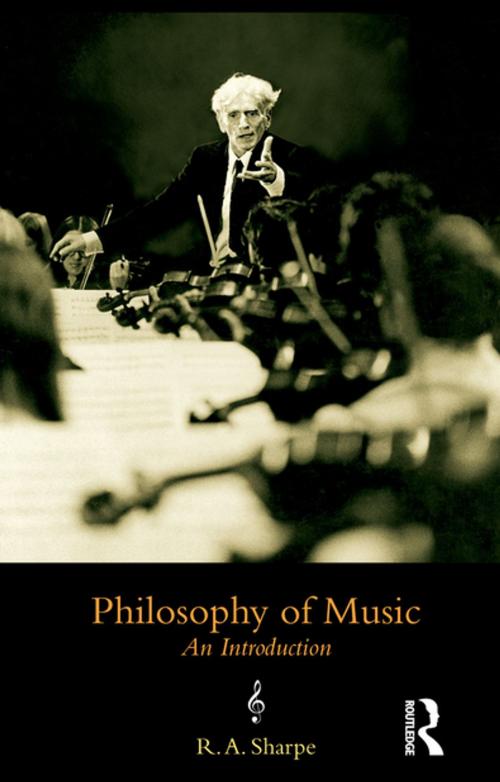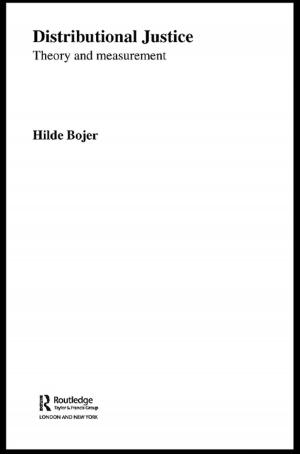| Author: | R.A. Sharpe | ISBN: | 9781317494539 |
| Publisher: | Taylor and Francis | Publication: | January 30, 2015 |
| Imprint: | Routledge | Language: | English |
| Author: | R.A. Sharpe |
| ISBN: | 9781317494539 |
| Publisher: | Taylor and Francis |
| Publication: | January 30, 2015 |
| Imprint: | Routledge |
| Language: | English |
This lively and lucid introduction to the philosophy of music concentrates on the issues that illuminate musical listening and practice. It examines the conceptual debates relevant to the understanding and performing of music and grounds the philosophy to practical matters throughout. Ideal for a beginning readership with little philosophical background, the author provides an overview of the central debates enlivened by a real sense of enthusiasm for the subject and why it matters. The book begins by filling in the historical background and offers readers a succinct summary of philosophical thinking on music from the Ancient Greeks to Eduard Hanslick and Edmund Gurney. Chapter 2 explores two central questions: what is it that makes music, or, to be precise, some pieces of music, works of art? And, what is the work of music per se? Is it just what we hear, the performance, or is it something over and above that, something we invent or discover? Chapter 3 discusses a problem pecullar to music and one at the heart of philosophical discussion of it, can music have a meaning? And if so, what can it be? Chapter 4 considers whether music can have value. Are there features about music that make it good, features which can be specified in criteria? Is a work good if and only if it meets with the approval of an ideally qualified listener? How do we explain differences of opinion? Indeed, why do we need to make judgements of the relative value of pieces of music at all? This engaging and stimulating book will be of interest to students of aesthetics, musical practitioners and the general reader looking for a non-technical treatment of the subject.
This lively and lucid introduction to the philosophy of music concentrates on the issues that illuminate musical listening and practice. It examines the conceptual debates relevant to the understanding and performing of music and grounds the philosophy to practical matters throughout. Ideal for a beginning readership with little philosophical background, the author provides an overview of the central debates enlivened by a real sense of enthusiasm for the subject and why it matters. The book begins by filling in the historical background and offers readers a succinct summary of philosophical thinking on music from the Ancient Greeks to Eduard Hanslick and Edmund Gurney. Chapter 2 explores two central questions: what is it that makes music, or, to be precise, some pieces of music, works of art? And, what is the work of music per se? Is it just what we hear, the performance, or is it something over and above that, something we invent or discover? Chapter 3 discusses a problem pecullar to music and one at the heart of philosophical discussion of it, can music have a meaning? And if so, what can it be? Chapter 4 considers whether music can have value. Are there features about music that make it good, features which can be specified in criteria? Is a work good if and only if it meets with the approval of an ideally qualified listener? How do we explain differences of opinion? Indeed, why do we need to make judgements of the relative value of pieces of music at all? This engaging and stimulating book will be of interest to students of aesthetics, musical practitioners and the general reader looking for a non-technical treatment of the subject.















